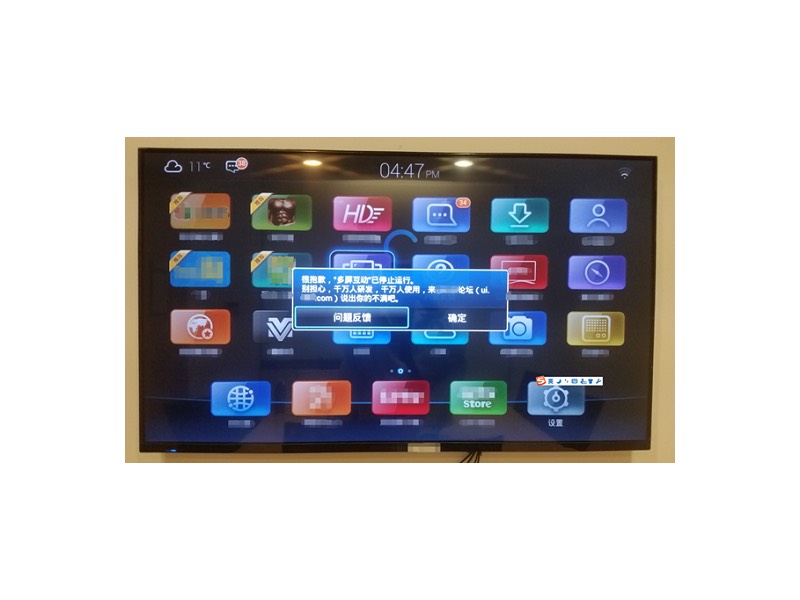- Home
- Internet
- Internet News
- Three Years After Libupnp Bug Was Fixed, Popular Apps and Millions of Devices Still Vulnerable
Three Years After Libupnp Bug Was Fixed, Popular Apps and Millions of Devices Still Vulnerable

Over six million devices continue to remain exposed to remote attacks even though the concerned vulnerabilities had officially been patched around three years ago. Security firm Trend Micro has reported a large number of vulnerable Android apps - including some widely used apps such as Netflix and Tencent QQMusic - are exposing a large pool of devices including smartphones, smart TVs, and routers to the risk of remote code execution attacks.
In December 2012, several vulnerabilities in Portable SDK for UPnP (Universal Plug and Play) devices, or libupnp, a standard set of networking protocols that allow network capable devices such as computers, printers, Wi-Fi access points to seamlessly discover and communicate with each other, were patched. Several mobile apps use these features to play media files or connect to other devices within a user's home network. It has been found that the majority of affected apps continue to use older, compromised SDK versions, making millions of their users vulnerable to attacks.
Trend Micro reports that it has found 547 apps that use older versions of libupnp, crippling the overall security of the app and its users. Of the said number of apps, 326 of them are available on the Google Play Store. The firm hasn't disclosed all the affected apps but noted that Linphone and Tencent QQMusic - that have been since patched - were affected.
The nature of the security holes not only compromises the security of millions of users who use the these apps, but also smartphones and many other network devices that relay the data back and forth. The bug was first publicly reported by security firm Rapid7 nearly three years ago.
The security firm had found programming flaws in common UPnP discovery protocol (SSDP) implementations that allowed an attacker to execute arbitrary code. The firm had also exposed vulnerability in UPnP control interface (SOAP) on private networks, and programming flaws in both. Due to poor configuration, it was found that device functions that should not be allowed to public were left open.
At the time, Rapid7 had warned that many of these network equipment that are no longer being shipped will never receive an update and will likely remain vulnerable forever. It had found vulnerabilities in over 6,900 products made by over 1,500 vendors.
In the blog post, Trend Micro has detailed how these vulnerabilities put smart TVs and other network equipment at security risks too.
Get your daily dose of tech news, reviews, and insights, in under 80 characters on Gadgets 360 Turbo. Connect with fellow tech lovers on our Forum. Follow us on X, Facebook, WhatsApp, Threads and Google News for instant updates. Catch all the action on our YouTube channel.
Related Stories
- Samsung Galaxy Unpacked 2025
- ChatGPT
- Redmi Note 14 Pro+
- iPhone 16
- Apple Vision Pro
- Oneplus 12
- OnePlus Nord CE 3 Lite 5G
- iPhone 13
- Xiaomi 14 Pro
- Oppo Find N3
- Tecno Spark Go (2023)
- Realme V30
- Best Phones Under 25000
- Samsung Galaxy S24 Series
- Cryptocurrency
- iQoo 12
- Samsung Galaxy S24 Ultra
- Giottus
- Samsung Galaxy Z Flip 5
- Apple 'Scary Fast'
- Housefull 5
- GoPro Hero 12 Black Review
- Invincible Season 2
- JioGlass
- HD Ready TV
- Laptop Under 50000
- Smartwatch Under 10000
- Latest Mobile Phones
- Compare Phones
- iQOO 15 Ultra
- OPPO A6v 5G
- OPPO A6i+ 5G
- Realme 16 5G
- Redmi Turbo 5
- Redmi Turbo 5 Max
- Moto G77
- Moto G67
- Asus Vivobook 16
- Asus Vivobook S16 (2026)
- Black Shark Gaming Tablet
- Lenovo Idea Tab Plus
- HMD Watch P1
- HMD Watch X1
- Haier H5E Series
- Acerpure Nitro Z Series 100-inch QLED TV
- Asus ROG Ally
- Nintendo Switch Lite
- Haier 1.6 Ton 5 Star Inverter Split AC (HSU19G-MZAID5BN-INV)
- Haier 1.6 Ton 5 Star Inverter Split AC (HSU19G-MZAIM5BN-INV)

















